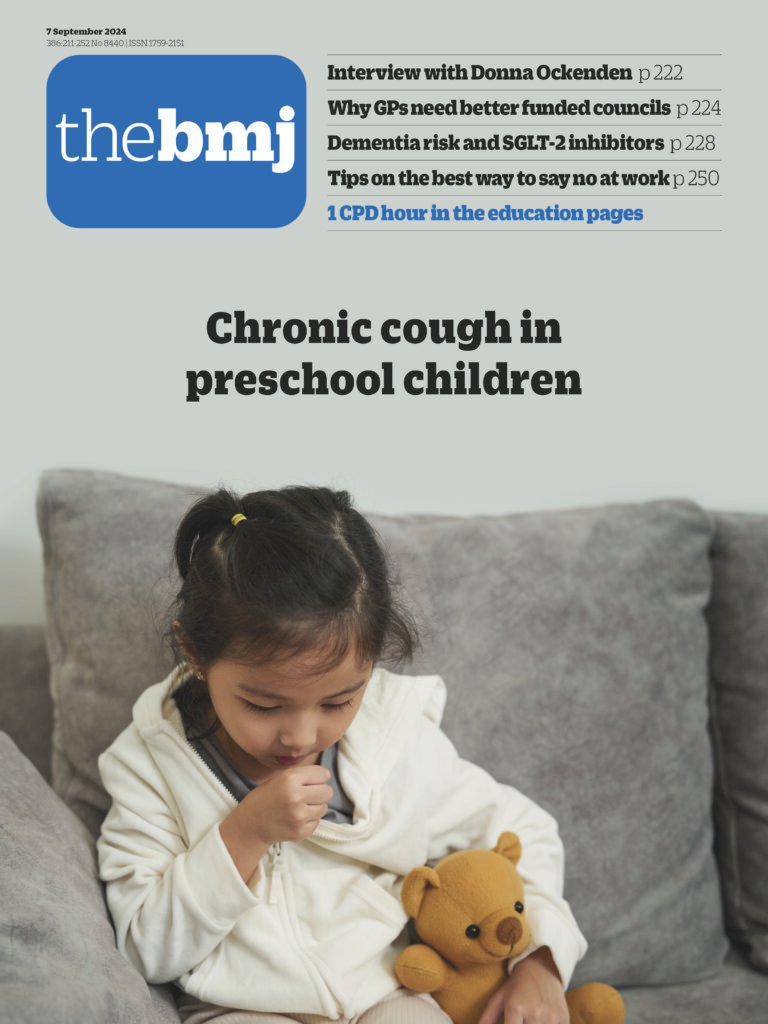Last year I spoke at Kensington Aldridge Academy. My task was to inspire the schoolchildren. I may or may not have succeeded, but the children certainly inspired me. They were full of hope and a clear sense of a better world. Their questions and comments were intelligent and insightful, and it was my favourite speaking engagement of 2023. Kensington Aldridge Academy is at the foot of Grenfell Tower.
David Cameron, prime minister during the period leading up to the Grenfell fire, was a previous speaker. I was told that the children had asked him to apologise for the fire that killed 72 people, including five of the academy’s pupils.12 The fire destroyed lives and livelihoods, leaving people with long term physical and psychological sequelae—poor people harmed by governmental and corporate failure, political and commercial determinants to the fore (doi:10.1136/bmj.q1983).3 Cameron refused to apologise.
A similar drama played out during the pandemic, with the world’s politicians unwilling to take responsibility for deaths that differentially affected disadvantaged communities and people on lower incomes.4 As the UK’s covid inquiry switches its focus to the effects on the healthcare system, its verdict on pandemic preparedness and the impact on staff is already a sobering one (doi:10.1136/bmj.q1865 doi:10.1136/bmj.q1969).56 The pandemic procurement scandal will be examined in a module in 2025, but corruption and the mismanagement of public funds—benefiting people and private enterprise with connections—is already well documented (doi:10.1136/bmj.o2620).7
Another unifying theme is the intertwining of political and commercial interests. If ever there was an age when that interplay demonstrably benefited the public, it isn’t now. Is it just that organisations that are “intended to protect” are “blind to their own failings” (doi:10.1136/bmj.q1865)?5 Or is it a case of seeing no evil? It’s a scenario evident in how food policy is set. Obesity is a major global health challenge requiring complex systemwide responses (doi:10.1136/bmj-2023-077139),8 access to weight loss services (doi:10.1136/bmj.q1950),9 and better lifestyles—as well as wonder drugs (doi:10.1136/bmj.q1767).10 The trade in sugar, for example, has driven empires and the slave trade. British Sugar is just one of many corporations that continue to exert influence, whether through overt or tacit political influence.
A new BMJ investigation finds that the UK’s Scientific Advisory Committee on Nutrition is riddled with commercial conflicts of interest (doi:10.1136/bmj.q1909).11 One argument is that commercial interests help food policy by involving people with experience. However, such logic runs counter to the evidence on competing interests across a range of settings. Unsurprisingly, commercial conflicts of interest prioritise commercial interests, emphasising positive findings and downplaying harms.
From housing policy to food policy, touching on every determinant of health, the disregard for the malign impact of competing interests is global. It’s the elephant in the room of public policy making, justified by one dimensional economic arguments. Companies continue to target politicians, health systems, clinicians, and the public to increase sales, while systems for monitoring, declaring, and excluded competing interests remain suboptimal (doi:10.1136/bmj.q1939).12 Industry profits continue to be prioritised ahead of the public’s health and wellbeing. The economic growth arguments that politicians and industry apologists use to enable industry’s interactions may well end up harming the economy through waste of public funds, increased health service costs, and workforce ill health.
The BMJ argued in 2004 that transparency was “almost” a panacea.13 It can be. But it can also be a fig leaf for corruption. The industrial-political complex must play by different rules to exclude commercial interests from public policy making—a reset that’s long overdue. The current system is responsible for killing people. Worse still, it’s getting away with it. The children of Grenfell deserve better.


